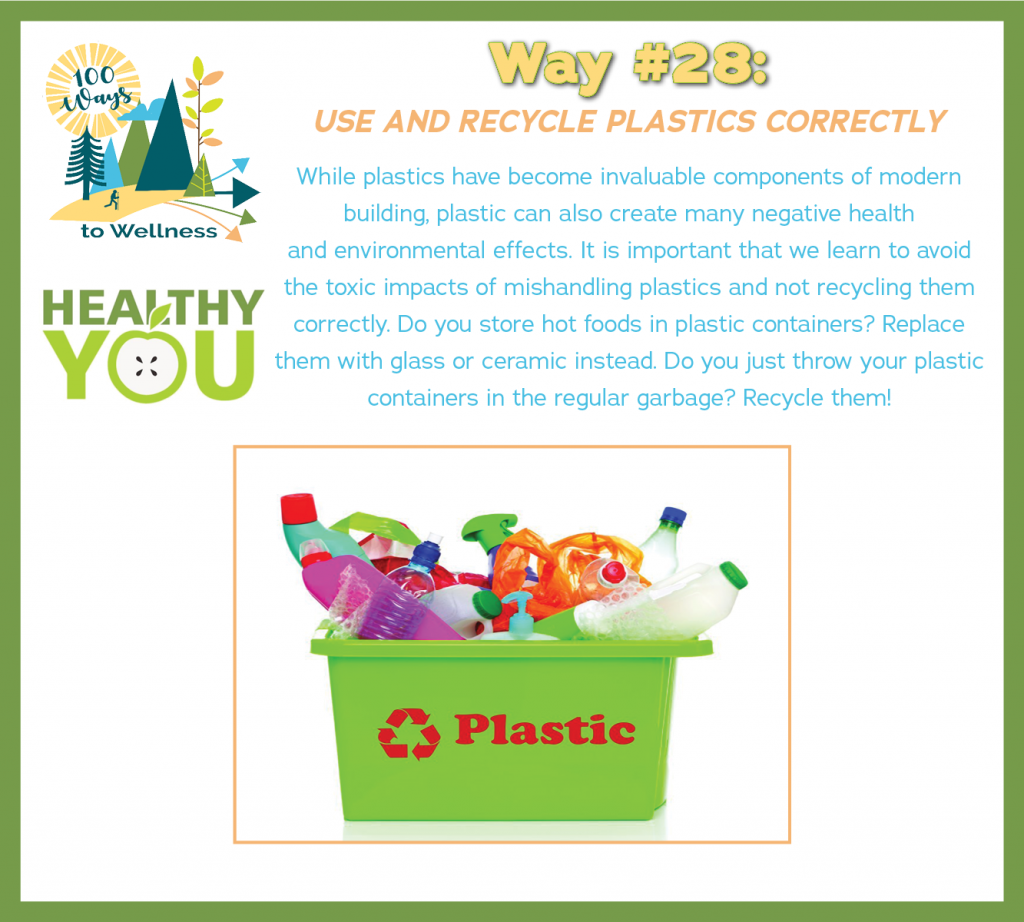


When we heat certain plastics or put hot items in contact with them – heated food for example – harmful chemicals are released and can even penetrate the food being stored, eventually making its way into our human bodies upon consumption of the item. These harmful chemicals have been linked to certain cancers, endometriosis, neurological damage, endocrine disruption, birth defects and child developmental disorders, reproductive damage, immune damage, asthma, and multiple organ damage. In many situations, we can reduce these exposures by replacing plastic food storage containers with glass or ceramic or seeking plastic alternatives proven not to be harmful for your desired purposes.
One of plastic’s most desirable traits—its durability and resistance to decomposition—is also the source of one of its greatest problems when it comes to disposal. Nature has a very difficult time breaking down the synthetic chemical bonds in plastic, creating the tremendous problem of its persistence. A very small amount of total plastic production (less than 10%) is effectively recycled; the remaining plastic is sent to landfills, where it is destined to remain for hundreds of thousands of years, or to incinerators, where its toxic compounds are spewed throughout the atmosphere to be accumulated throughout the surrounding ecosystems.Take a few extra minutes to sort your plastics and look for local recycling facilities that can help you properly dispose of unused and unwanted plastic materials before just throwing them in your regular garbage can
Here are just a few of the many positive things our patients have to say about their the care they received at Cary Medical Center.

